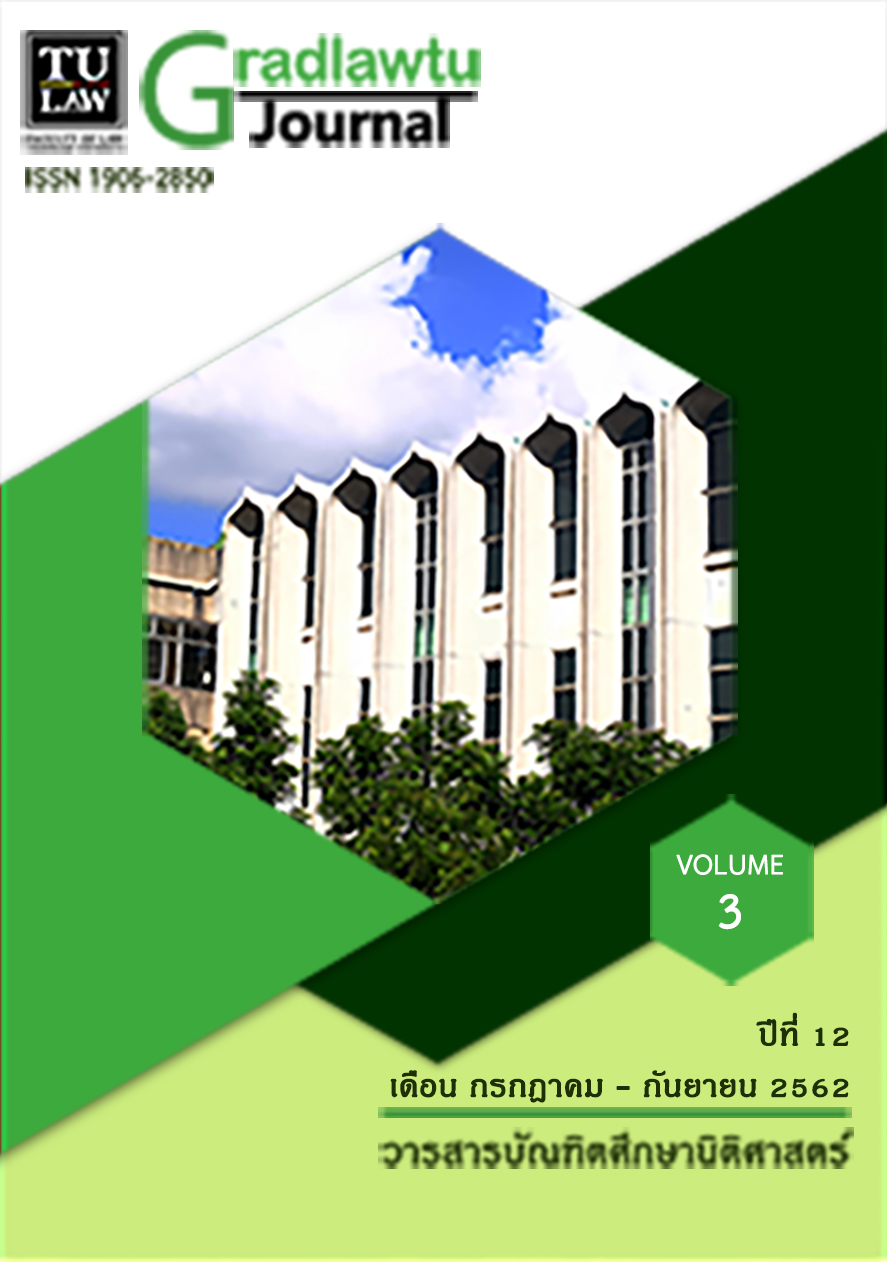RIGHTS ASSOCIATED WITH THE NAMING OF MINORS IN THAILAND
Main Article Content
Abstract
Thai law contains no specific provisions about a minimum age for individuals to change their names, so problems arising over rights associated with the naming of minors in Thailand were studied. In practice, issues arise when minors independently express the desire to change their names. Appropriate use and interpretation of current regulations must provide adequate protection for minors. Should minors be permitted to independently change their own names, and if so, how must Thai law be amended to offer sufficient protection?Results were that minors may opt to change their own names on an individual, de facto basis. International comparative study of laws of the United States, specifically state legislation in Indiana, Alaska, and Illinois, indicated that names of minors are changed by petitions filed in court. The courts duly investigate each request and issue a decision in the best interest of the child, a childrens’ rights principle, which derives from Article 3 of the United Nations Convention on the Rights of the Child. This process, providing protection to minors, might be used as a basis for formulating relevant laws in Thailand. These findings should help the Thai judiciary to possess more explicit and efficient regulations related to childrens’ rights.
Article Details
บทความหรือข้อความคิดเห็นใด ๆ ที่ปรากฏในวารสารบัณฑิตศึกษานิติศาสตร์เป็นวรรณกรรมของผู้เขียนโดยเฉพาะคณะนิติศาสตร์ มหาวิทยาลัยธรรมศาสตร์ และบรรณาธิการไม่จำเป็นต้องเห็นด้วย

